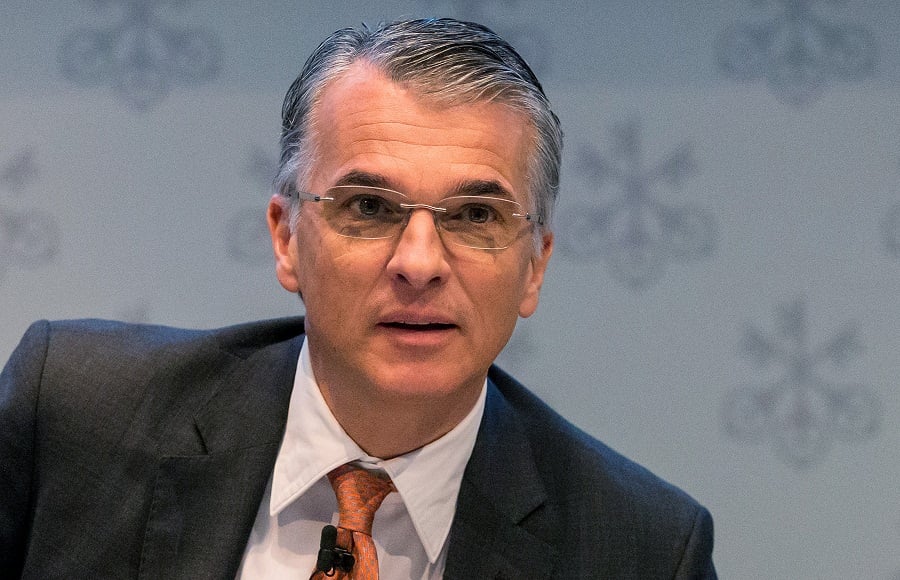

Swiss Finance Minister Karin Keller-Sutter said she was concerned about the level of compensation paid out to executives such as Sergio Ermotti, who was brought back to run UBS Group a year ago and oversee the rescue of Credit Suisse.
Ermotti, who has been leading one of the most complex bank integrations since the financial crisis, received total compensation of around $16 million for his first nine months on the job, making him the highest-paid European bank chief. While it’s up to shareholders to sign off on such amounts, they exceed “the imagination of any normal citizen,” Keller-Sutter said during a press conference.
“It does concern me,” she said, adding that she was expressing her personal views and referring to a broader trend at companies, not just UBS and its CEO. “In the last couple of years, this has led to an alienation between companies and the people.”
On Wednesday, the Swiss government unveiled a sweeping set of measures to reform bank oversight in response to the country’s most severe financial crisis in over a decade, addressing a weakness that helped accelerate Credit Suisse’s demise last year. The proposals effectively single out UBS as Switzerland’s sole globally systemic lender, while stopping short of giving the regulator the power to fine lenders.
UBS last month announced that it cut its overall bonus pool for 2023 by 14% despite a record annual profit driven by the acquisition of Credit Suisse. The bonus allocation was a reflection of the impact from challenging operating conditions and market volatility, the bank said.
As part of the proposals unveiled Wednesday, the government said it will consider potential clawbacks for bonuses. Shareholders of UBS are set to vote on executives’ compensation later this month.

The looming threat of federal funding cuts to state and local governments has lawmakers weighing a levy that was phased out in 1981.

The fintech firms' new tools and integrations address pain points in overseeing investment lineups, account monitoring, and more.

Canadian stocks are on a roll in 2025 as the country prepares to name a new Prime Minister.

Carson is expanding one of its relationships in Florida while Lido Advisors adds an $870 million practice in Silicon Valley.

The approval of the pay proposal, which handsomely compensates its CEO and president, bolsters claims that big payouts are a must in the war to retain leadership.
RIAs face rising regulatory pressure in 2025. Forward-looking firms are responding with embedded technology, not more paperwork.
As inheritances are set to reshape client portfolios and next-gen heirs demand digital-first experiences, firms are retooling their wealth tech stacks and succession models in real time.
